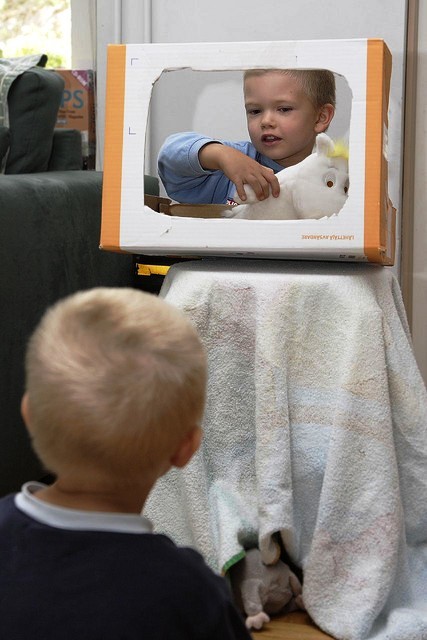Parents allow Extra TV hours for Difficult and Cranky Children: Study

Cranky and difficult infants and toddlers are increasingly being put in front of televisions in an attempt to calm them down, according to a study.
Parenting is a difficult task and handling a fussy child can be very challenging. Researchers at the Boston Medical Center found many helpless parents allowing their toddlers spend time watching television and computer games. For the study experts interviewed parents of nearly 7,450 children born in 2001 and followed them for a number of years to note long-term behavioral impacts and frequency of television viewing.
Almost 39 percent of the children were found to be demanding, irritated and moody when aged about nine months. They daily spent 2 hours and 29 minutes in front of the screen, which is nine minutes more than the maximum recommended hours of 'TV time' for children.
Jenny Radesky, study author and researcher at department of pediatrics at Boston Medical Center said, "The children who really had difficulties with regulating their emotions, calming themselves down and sleeping well wound up watching significantly more media when they were toddlers," reports the MedicalXpress.
Using television and electronic gadgets to pacify children works temporarily but too much and too early exposure can cause learning difficulties and impair their social interaction skills.
The American Academy of Pediatrics urges parents to avoid TV and other media exposure for children aged below two and to limit TV time to not more than two hours for older children. Working mothers and parents are too stressed to manage family, chores and work and use TV as substitute nanny.
A recent study found that 70 percent of parents are absorbed with their cell phones during meal times and give very little attention to their children. Lack of attention and parental love can spur rebelliousness and bad behavior.
The experts believe difficult and 'high-maintenance' toddlers who have problems adjusting and regulating emotion tend to carry forward this trait in to adulthood, which may have both positive negative impacts in their lives. But the study did not explain if watching too much TV made children develop these traits and authors added more research is needed to examine behavioral changes induced by watching various kinds of TV programs.
Radesky said, "I really want to know if this is a good thing. Are parents getting a break from their more intense children by putting them in front of educational media? Or is it worse because they're missing out on more educational activities?"
More information is available online in the Journal Pediatrics.
Apr 15, 2014 07:41 AM EDT




